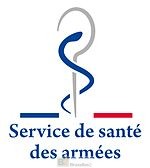Flight crew medical visit: what are the applicable European regulations?

(BRUXELLES2) The issue of medical checks for pilots and flight crew - an eminently technical subject - was brought to the fore by the accident of the German Wings A320 between Digne and Gap. In France, airline pilots are generally checked by doctors from military hospitals. This is not the case everywhere... Explanation
Some pilots questioned a new European regulation which would allow, tomorrow, to have medical controls, less strict than those of today, allowing in particular to have recourse to general practitioners instead of centers of medical expertise like Today. Is this correct or not?
I asked the European Commission today to inform me about the real state of its regulations. Surprisingly, the duty spokesperson responded on the tangent, according to an argument in three elements that can be summarized as follows: 1. We must not “speculate” on a change in regulations today. 2. There are no ongoing regulatory changes. 3. You have to go to EASA, the European Aviation Safety Agency, and not to the European Commission.
Rather confusing answer (to be diplomatic :-), which needs to be clarified.
1° The European Commission is indeed competent in terms of regulations in the end (even if most of the regulations are "written" by the EASA). And her alone. It also intervenes within the framework of its powers to implement more general legislation - approved by the legislative authority: Parliament and Council (Regulation (EC) No 216/2008 of the European Parliament and of the Council).
2° A very detailed regulation was thus finalized, “ determining the technical requirements and administrative procedures applicable to civil aviation aircrew » regulations amended several times. The latest Commission regulation, which dates from November 3, 2011, was amended in 2012 (Regulation (EU) No 290/2012 of March 30, 2012, and twice in 2014 (Regulation (EU) No 70/2014 of January 27, 2014, Regulation (EU) n° 245/2014 of March 13, 2014) A consolidated version can be downloaded here. It should be noted that this regulation does not require "transposition" in the Member States, like a directive. But it often requires implementing measures (in the form of a ministerial decree, in France for example), if only to designate the medical control centres.
3° The latest changes concern, among other things, the methods of medical control. And, effectively, we open up the possibility, “ if the national law of the Member State issuing the license allows it », to general practitioners (= GMP) to carry out the medical control of certain pilots, but not of all. This concerns pilots in the LAPL category - a new license category created for light aviation pilots (less than 2 tons, less than 3 passengers *), therefore not pilots of commercial airliners.
4° Airline pilots remain subject to a control by an aeromedical center (= AeMC **) for their initial certificate, their admission to the career. For the renewal of their certificate, this will be done either by an AeMC or by an aero-medical examiner (= AME, a specialized doctor). In some countries, medical examinations can therefore be repeated - with this new regulation - by an "isolated doctor", as confirmed to B2 by a civil aviation specialist.
Extract: “Class 1 and 2 medical certificates are extended or renewed by an AeMC or an AME. Medical certificates for LAPL are revalidated or renewed by an AeMC, an AME or, if the national law of the licensing Member State allows it, by a GMP. »
5° The medical fitness requirements are clearly described in appendix IV of the European regulation. In particular, it includes fairly detailed paragraphs on psychiatric capacity or loss of capacity.
"a) The applicant must not have a proven medical history or clinical diagnosis of any psychiatric disease or impairment, condition or disorder, acute or chronic, congenital or acquired, likely to affect the safe exercise the privileges of the license(s) in question.
b) An applicant with mental or behavioral disorders due to the consumption or abuse of alcohol or psychotropic substances is declared unfit until he is recovered and freed from any dependence on the substance in question. After successful treatment, he submits to a psychiatric evaluation, the result of which must be satisfactory. The applicant for a class 1 medical certificate is referred to the licensing authority. (...)
c) The applicant with a psychiatric condition such as: 1) mood disorders; 2) neurotic disorders; 3) personality disorders; 4) mental and behavioral disorders; must undergo a satisfactory psychiatric examination before a fitness assessment can be considered.
d) An applicant with a history of isolated or repeated acts of deliberate self-harm is deemed unfit. This applicant must submit to a psychiatric examination, the result of which is satisfactory, before a fitness assessment can be considered.
(e) Aero-medical assessment: (1) the applicant for a class 1 medical certificate showing one of the conditions listed in point (b), (c) or (d) above is referred to the licensing authority; (...)
f) An applicant with a history or established diagnosis of schizophrenia, schizotypal or delusional disorder is declared unfit. An applicant for a Class 1 medical certificate showing any of the conditions listed in b), c) or d) above is referred to the licensing authority; »
Small comment: it's quite simple actually. Just say it. Good crisis communication is not about denying information or sending journalists "out of control", it's about giving the right information...
(NGV)
(*) If I understood correctly.
(**) Function carried out in France by medical expertise centers for aircrew (CEMPN), which are generally attached to a military hospital in France: the Percy hospital in the Paris region (Clamart), Sainte Anne in Toulon, Robert Picque in Bordeaux. There is also the Air France Center at Roissy and the Toulouse-Blagnac center.
Read also: Condolences from Europeans after the crash of the A320

